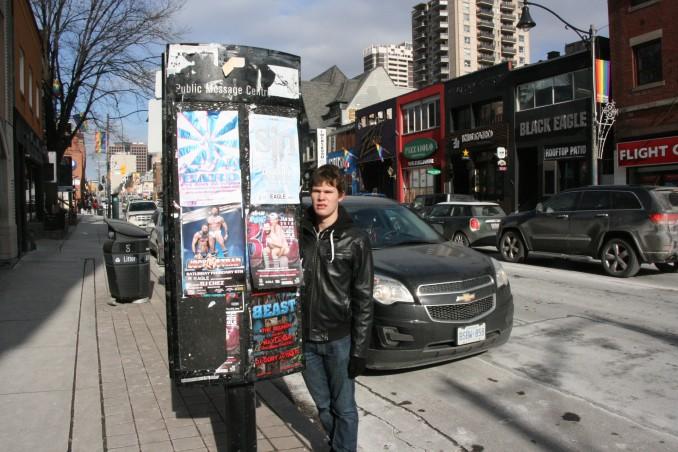By Mitchell Thompson
The Eyeopener’s article on the Trans Artist Residency gave me mixed feelings. Although the article was great and the program is badly needed, it feels like the progressive potential is being smothered in the crib.
Evan Roy, the curator told the Eye that the program is intended to “empower students by focusing on trans and queer issues and on the issues that are affecting their lives — such as identity, and power and how these things intersect with art.”
It is also great — considering that poverty affects trans people at appallingly high rates (all poverty is appalling but you get what I mean) and trans artists to an even greater extent — that the program provides residents with some financial security.
Roy told the Eye that “these [types of] residencies are so rare and infrequent … It is great for the applicants to have some income. Have some training because they are so financially strained already.” This is an important issue and it needs to be dealt with head-on. I’m glad to see that Roy raised it.
But this is where the frustration enters. Roy mentioned financial strain and although the program is meant to empower, there’s seemingly no real attempt to empower students against the causes of financial strain. Despite the social justice language, the solution seems painfully liberal. While it’s progressive — and it’s wonderful that groups are trying to help — there’s potential here that isn’t being touched on. It seems like its progressive intent is struggling against the conservative edge of identity politics.
That frustrates me.
Worse, its lack of politicization makes the program a feel-good short-term solution for a long-term problem. It provides temporary security, but once the residency ends that mostly goes away. I’m glad to see the university is helping but the program’s temporary nature means that, aside from public funding, it’s basically charity. That may be better than nothing but it’s not really empowerment.
Real empowerment would encourage the students to fight the forces behind their financial strain. Real empowerment links up intersecting struggles in a common front, fighting for real security and dignity. To do otherwise feels like a half-measure.
Sean Wetselaar’s piece on the gig economy touched on similar issues and I feel obligated to provide an alternative perspective to his. Wetselaar writes “The days of grabbing that comfy nine-to-five with benefits and a healthy pension at the end of the line are long behind us. We need to take jobs where we can get them, and do what we need to do to make ends meet. I know that can sound frustrating, unfair and terrifying. But the truth is that while we may be entering a tough workforce, our challenges can also be our opportunities.”
I see what he means, optimism and temporary residencies are better than pessimism, constant strain and quiet desperation but we shouldn’t accept these conditions.
There are real gains to be made if we’re willing to fight for them.












Leave a Reply